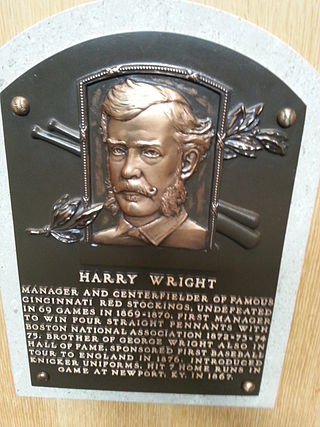
The Veterans Committee is the popular name of various committees of the National Baseball Hall of Fame and Museum that elect participants other than recently retired players.

Elections to the Baseball Hall of Fame for 1946 were conducted by methods refashioned and then fashioned again during the year. As in 1945, the Baseball Writers' Association of America (BBWAA) voted by mail to select from recent players, and elected no one. Also, as in 1945, the Old Timers Committee responded by electing the biggest class yet, then 10 and now 11 people: Jesse Burkett, Frank Chance, Jack Chesbro, Johnny Evers, Clark Griffith, Tommy McCarthy, Joe McGinnity, Eddie Plank, Joe Tinker, Rube Waddell, and Ed Walsh.

Elections to the Baseball Hall of Fame for 2004 proceeded in keeping with rules enacted in 2001. The Baseball Writers' Association of America (BBWAA) held an election to select from recent players; Dennis Eckersley and Paul Molitor gained induction to the Hall.
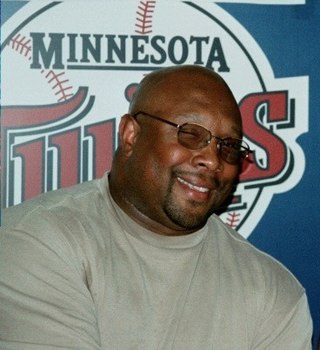
Elections to the Baseball Hall of Fame for 2001 followed the system in use since 1995. The Baseball Writers' Association of America (BBWAA) voted by mail to select from recent major league players and elected two: Kirby Puckett and Dave Winfield. The Veterans Committee met in closed sessions and selected two people from multiple classified ballots: Bill Mazeroski and Hilton Smith.
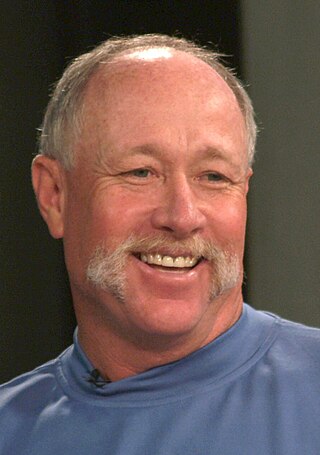
Elections to the Baseball Hall of Fame for 2008 proceeded according to revised rules enacted in 2001 and further revamped in 2007. The Baseball Writers' Association of America (BBWAA) held an election to select from among recent players, resulting in the induction of Goose Gossage. A restructured format for Veterans Committee voting resulted in the first successful election by that body since 2001, with five candidates earning induction, after the three elections in the intervening years had failed to produce any inductees. Selected by the Veterans Committee were former managers Billy Southworth and Dick Williams, and former executives Barney Dreyfuss, Bowie Kuhn, and Walter O'Malley.

Elections to the Baseball Hall of Fame for 1997 followed the system in use since 1995. The Baseball Writers' Association of America (BBWAA) voted by mail to select from recent major league players and elected Phil Niekro. The Veterans Committee met in closed sessions and selected three people from multiple classified ballots: Nellie Fox, Tommy Lasorda, and Willie Wells. A formal induction ceremony was held in Cooperstown, New York, on August 3, 1997.

Elections to the Baseball Hall of Fame for 1996 followed the system in use since 1995. The Baseball Writers' Association of America (BBWAA) voted by mail to select from recent major league players but no one tallied the necessary 75% support.
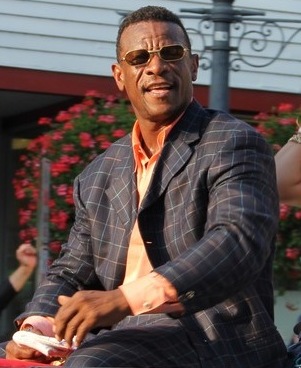
Elections to the Baseball Hall of Fame for 2009 proceeded according to revised rules enacted in 2001 and further revamped in 2007. The Baseball Writers' Association of America (BBWAA) held an election to select from among recent players, and elected Jim Rice and Rickey Henderson.

Elections to the Baseball Hall of Fame for 1973 followed the system in place since 1971, plus the special election of Roberto Clemente, who had died in a plane crash on New Year's Eve. The Baseball Writers' Association of America (BBWAA) voted by mail to select from recent major league players and elected Warren Spahn. The Veterans Committee met in closed sessions to consider executives, managers, umpires, and earlier major league players. It selected three people: Billy Evans, George Kelly, and Mickey Welch. The Negro Leagues Committee also met in person and selected Monte Irvin. A formal induction ceremony was held in Cooperstown, New York, on August 6, 1973, with Commissioner of Baseball Bowie Kuhn presiding.
Elections to the Baseball Hall of Fame for 1972 followed the system established one year earlier. The Baseball Writers' Association of America (BBWAA) voted by mail to select from recent major league players and elected three: Yogi Berra, Sandy Koufax, and Early Wynn. The Veterans Committee met in closed sessions to consider executives, managers, umpires, and earlier major league players. It also selected three people: Lefty Gomez, Will Harridge, and Ross Youngs. The Negro Leagues Committee met for the second time and selected Josh Gibson and Buck Leonard. A formal induction ceremony was held in Cooperstown, New York, on August 7, 1972, with Commissioner of Baseball Bowie Kuhn presiding.
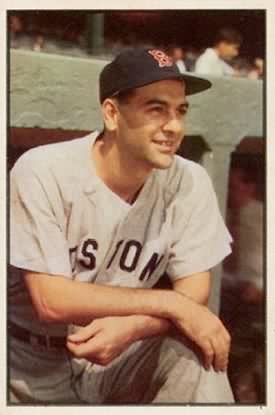
Elections to the Baseball Hall of Fame for 1970 followed the system of annual elections in place since 1968. The Baseball Writers' Association of America (BBWAA) voted by mail to select from recent major league players and elected Lou Boudreau. The Veterans Committee met in closed sessions to consider executives, managers, umpires, and earlier major league players. It selected three people: Earle Combs, Ford Frick, and Jesse Haines. A formal induction ceremony was held in Cooperstown, New York, on July 27, 1970, with Commissioner of Baseball Bowie Kuhn presiding.
Elections to the Baseball Hall of Fame for 1969 followed the system reintroduced in 1968. The Baseball Writers' Association of America (BBWAA) voted once by mail to select from recent major league players and elected two, Roy Campanella and Stan Musial. The Veterans Committee met in closed sessions to consider executives, managers, umpires, and earlier major league players. It selected two players, Stan Coveleski and Waite Hoyt. A formal induction ceremony was held in Cooperstown, New York, on July 28, 1969, with Commissioner of Baseball Bowie Kuhn presiding.

Elections to the Baseball Hall of Fame for 1966 followed the system introduced for even-number years in 1956. The Baseball Writers' Association of America (BBWAA) voted by mail to select from recent major league players with provision for a second, "runoff" election in case of no winner. Ted Williams tallied more than 90% on the first ballot. Meanwhile, the Veterans Committee was meeting annually to consider executives, managers, umpires, and earlier major league players. It selected Casey Stengel. A formal induction ceremony was held in Cooperstown, New York, on July 25, 1966, with Commissioner of Baseball William Eckert presiding. During his acceptance speech, Williams advocated for the inclusion of Negro league baseball players, such as Satchel Paige and Josh Gibson, in the Hall of Fame. Paige was inducted in 1971, and Gibson in 1972.

Elections to the Baseball Hall of Fame for 2010 proceeded according to rules enacted in 2001 and revised in 2007. As always, the Baseball Writers' Association of America (BBWAA) voted by mail to select from a ballot of recent players; one player was elected, Andre Dawson.
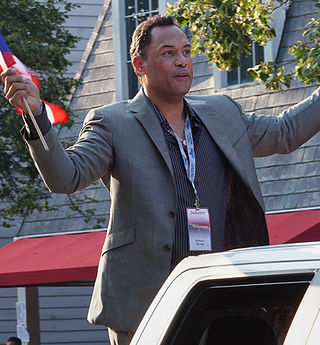
Elections to the National Baseball Hall of Fame for 2011 proceeded according to the rules revised in July 2010. As in the past, the Baseball Writers' Association of America (BBWAA) voted by mail to select from a ballot of recently retired players. The new Expansion Era Committee, which replaced the Veterans Committee, convened in December 2010 to select from an Expansion Era ballot of long-retired players and non-playing personnel who made their greatest contributions to the sport from 1973 to the present time, called the "Expansion Era" by the Hall of Fame.

Elections to the Baseball Hall of Fame for 2012 proceeded according to rules most recently revised in July 2010. As in the past, the Baseball Writers' Association of America (BBWAA) voted by mail to select from a ballot of recently retired players, with results announced on January 9, 2012. The Golden Era Committee, the second of three new era committees established by the July 2010 rules change, replacing the Veterans Committee, convened early in December 2011 to select from a Golden Era ballot of retired players and non-playing personnel who made their greatest contributions to the sport between 1947 and 1972, called the "Golden Era" by the Hall of Fame.
Elections to the Baseball Hall of Fame for 2014 proceeded according to rules most recently revised in July 2010. As in the past, the Baseball Writers' Association of America (BBWAA) voted by mail to select from a ballot of recently retired players, with results announced on January 8, 2014. The Expansion Era Committee, one of three voting panels that replaced the more broadly defined Veterans Committee following the July 2010 rules change, convened early in December 2013 to select from a ballot of retired players and non-playing personnel who made their greatest contributions to the sport after 1972, a time frame that the Hall of Fame calls the "Expansion Era".

Elections to the Baseball Hall of Fame for 2015 proceeded according to rules most recently amended in 2014. As in the past, the Baseball Writers' Association of America (BBWAA) voted by mail to select from a ballot of recently retired players, with results announced on January 6, 2015. Randy Johnson, Pedro Martínez, John Smoltz and Craig Biggio were elected to the Hall of Fame. It was the first time since 1955 that the BBWAA elected four players in one year.
Elections to the National Baseball Hall of Fame for 2018 proceeded according to rules most recently amended in 2016. As in the past, the Baseball Writers' Association of America (BBWAA) voted by mail to select from a ballot of recently retired players. The results were announced on January 24, 2018, with the BBWAA electing Chipper Jones, Vladimir Guerrero, Jim Thome and Trevor Hoffman to the Hall of Fame. Jones and Thome were elected in their first year of eligibility.

Elections to the National Baseball Hall of Fame for 2020 proceeded according to rules most recently amended in 2016. As in the past, the Baseball Writers' Association of America (BBWAA) voted by mail to select from a ballot of recently retired players. The results were announced on January 21, 2020, with Derek Jeter and Larry Walker elected to the Hall of Fame.

















